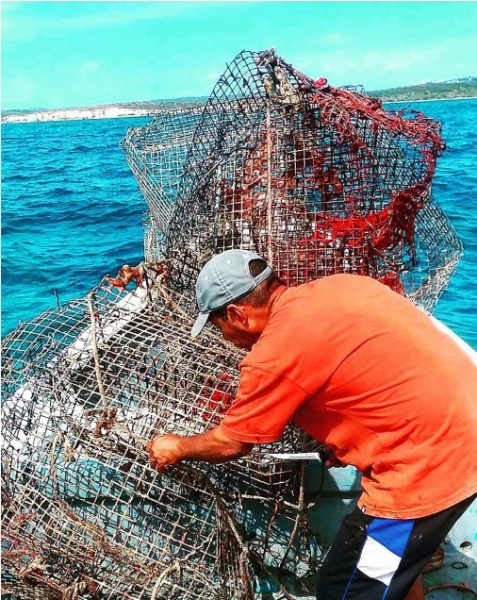
Today, the National Fish and Wildlife Foundation (NFWF), a partner of the NOAA Marine Debris Program, announced four grants totaling $643,000 to support activities in Alaska, Florida, Maine, and Washington to reduce the amount of derelict fishing gear in the marine environment. The grantees will leverage an additional $226,000 in matching contributions, with a total of $870,000 dedicated for this work.
Derelict fishing gear is fishing gear that is lost, abandoned, or discarded in the marine environment, and includes lines, nets, pots, traps, floats, and other gear. Once lost or discarded in the ocean or Great Lakes, gear can continue to trap and kill fish, crustaceans, marine mammals, sea turtles, and seabirds, also known as ghost fishing.
The grants announced today are provided through the Fishing for Energy Grants Program, a partnership between NOAA, NFWF, Covanta, and Schnitzer Steel Industries that began in 2008 to promote proper disposal of old, unusable, and derelict fishing gear. The program installs collection bins that provide the fishing community with a free option for disposing of old or unwanted gear, which is then converted into energy. Program partners also provide grant funding for projects that find innovative solutions to reduce the loss of gear at sea and reduce the impacts of derelict fishing gear to wildlife and habitats. This year, additional funding was provided by Shell Oil Company, as well as through community service funds.
Grant awards from this year’s Fishing for Energy program will support technological advancements to reduce ghost fishing and to prevent the loss of fishing gear, as well as to assist the state government of Florida and its partners to better coordinate its state-wide marine debris prevention, removal, research, education, and outreach efforts.
The full announcement and descriptions of the awarded projects can be found on the NFWF website.

I shall share with all my Sea Shepherd friends.